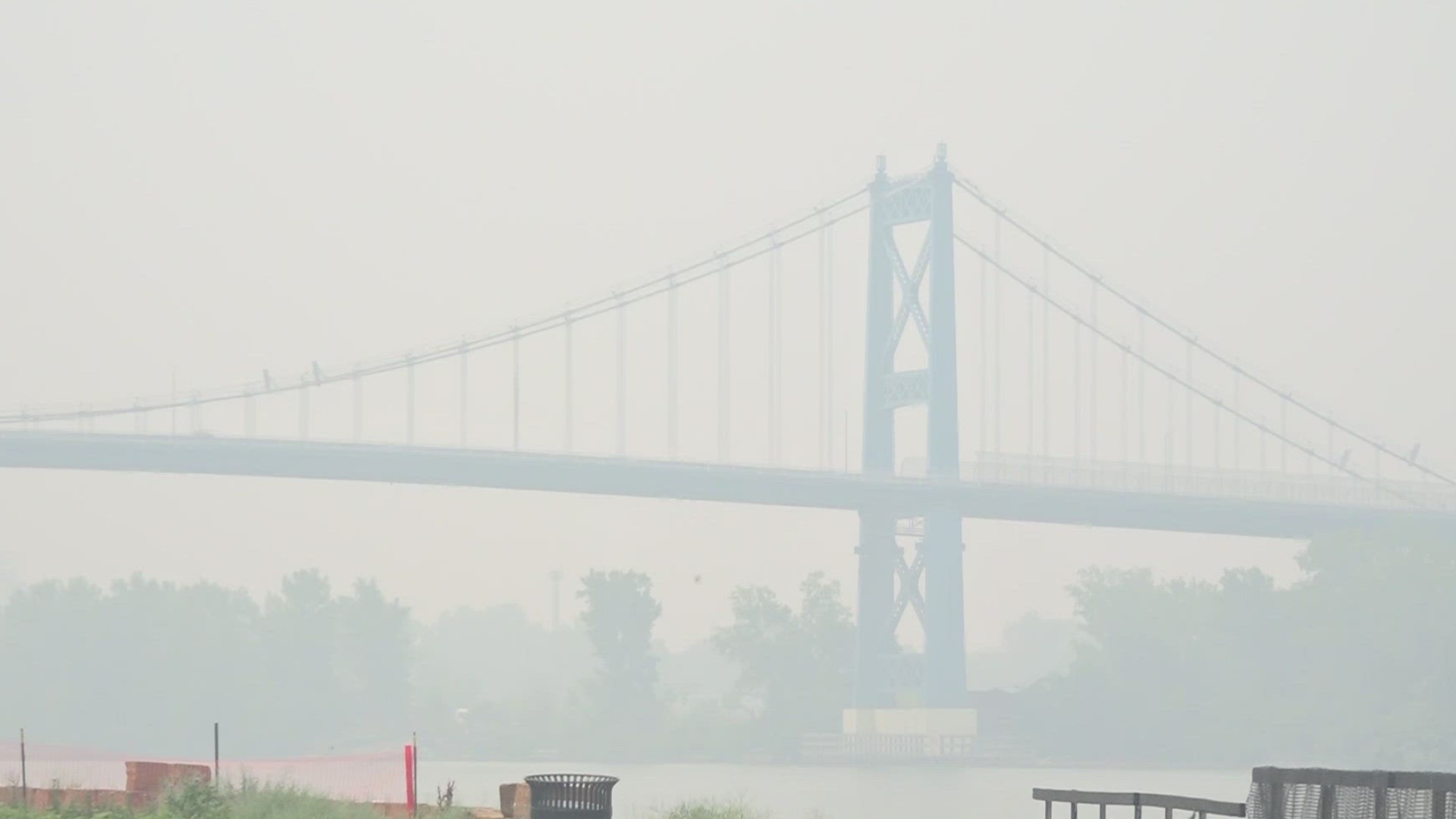TOLEDO, Ohio — With the air in northwest Ohio and southeast Michigan once again thick with haze from Canadian wildfires, many noticed they again suffered from symptoms such as a tight chest, itchy eyes or a sore throat.
The smoke from fires in eastern Canada has cause poor air quality that can affect health -- especially for some vulnerable people.
Dr. Brian Kaminski, vice president of medical affairs for ProMedica, offered advice Wednesday for staying safe while the region's air quality remains unhealthy.
"Most people, healthy individuals who have short-term exposure to this, are going to be just fine and probably not notice any symptoms at all," Kaminski said.
Kaminski warned those with pre-existing conditions, particularly respiratory illnesses such as asthma and chronic obstructive pulmonary disease, could feel the effects.
"The wildfires create particulates in the air," Kaminski said. "Those particulates are pollutants. They have a certain chemical composition and when we breathe them in, they can be irritants to our respiratory system."
Toledo city officials warned residents Wednesday to limit their outdoor activity and take precautions, such as avoiding outdoor exercising and wear a mask if possible.
"You know, we're probably all fed up with masking because of COVID," Kaminski said. "But the truth of the matter is they are protective in this situation."
This is the second time Toledo has been hit with haze like this. In early June, the fires in Canada also clouded our skies. But just like before, the haze will pass. And why officials urge us to take precautions it is nothing we should fear.
"I don't want people to panic over this," Kaminski said. "I want you to use common sense and maybe take some preventative measures but don't panic over this because it's temporary. It is going to go away."
More on WTOL:

